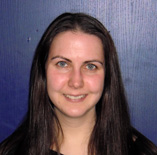 Hello again from the Analytical team! Since my first blog post a few months ago, I have celebrated my one-year anniversary working at the RSC (cake was involved ...) and have continued training in aspects of the Publishing Editor role.
Hello again from the Analytical team! Since my first blog post a few months ago, I have celebrated my one-year anniversary working at the RSC (cake was involved ...) and have continued training in aspects of the Publishing Editor role.
When I wrote my
initial blog post back in February I had just started training in the peer-review process, dealing with new manuscripts submitted to our journals. I am now doing much of this independently, and selecting referees, looking at their reports and making decisions as to whether an article is suitable for publication is now a regular part of my day! I am still spending time editing manuscripts and applying proof corrections before publishing articles online, so it’s nice to be able to follow an article right from submission to publication.
At the opposite end of the publication process, I have recently become involved with issue makeup for
Analytical Methods, which involves the coordination of articles into a print issue and commissioning for journal covers. It’s great to have so many different things to do, and as I am still spending half of my time working on
Analytical Abstracts, one of our team’s databases, my day is always very varied!
As well as the main aspects of the job, there are many other things to get involved with here. In March, along with many other staff I helped out on the RSC stands at the
Cambridge Science Festival, which were coordinated by colleagues in the Science, Education and Industry department. We enjoyed playing with gloop nearly as much as the children! There are also various training opportunities on the graduate scheme – I recently attended a Chemical Science Writing course, learning to write for the RSC magazines and supplements, and a few weeks ago had my first article published on the
Chemistry World website.
Sarah is a Graduate working in the Royal Society of Chemistry's Publishing Department. To see if there are any current vacancies go to 'RSC: Latest Vacancies' Blog or subscribe to 'RSC: Latest Vacancies' by Email
more...
